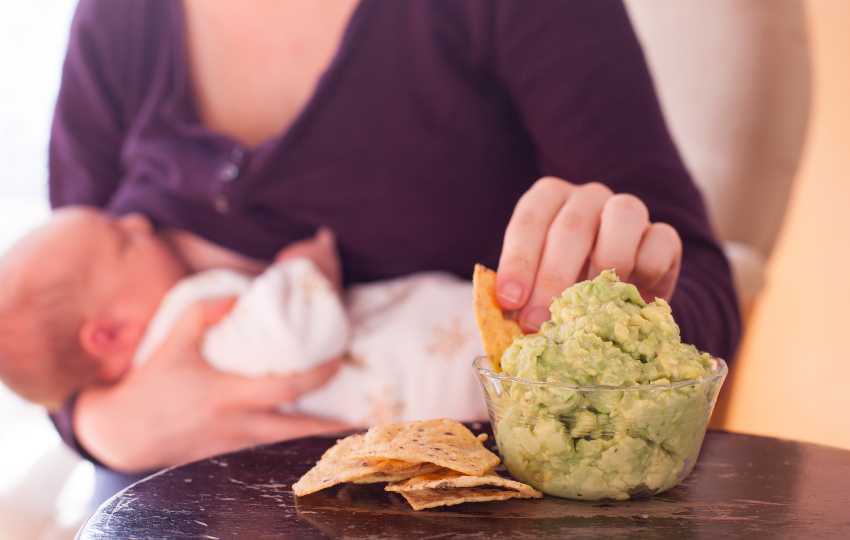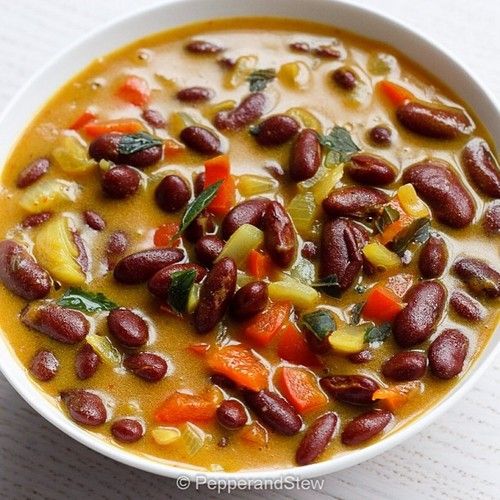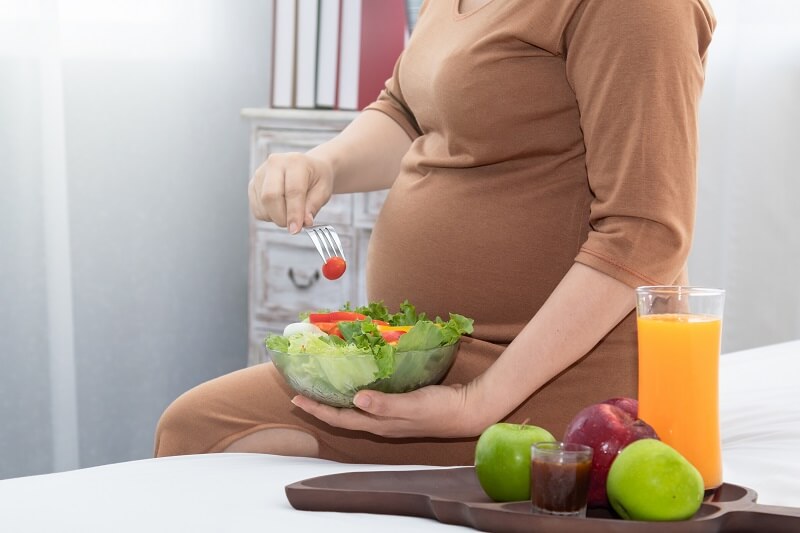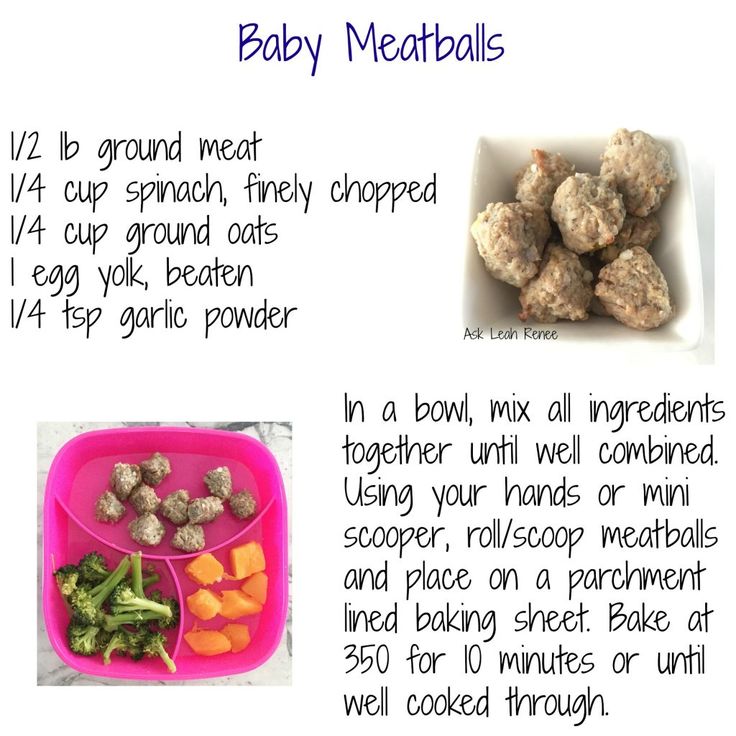Foods that can upset baby while breastfeeding
8 Foods to Avoid When Breastfeeding Your Baby
We’ll say it over and over again: breastfeeding is one of the best things that you can do for baby. Breastmilk contains essential nutrients that help to nourish a growing baby and provides unbeatable immunity support. The benefits of breastmilk are far and wide, plus it’s free and provides a wonderful bonding experience. Yet all good things come with some problems every now and then. While breastmilk is the best thing for your baby, it can make your baby fussy. When this happens, it’s understandable to get confused and even a little bit worried—but don’t worry. Often times the reason that your breastfed baby is getting fussy is because of something you’ve eaten that puts strain on your baby’s digestive tract. In this article, we’ll explore eight of the most common foods that could be making your breastfed baby fussy.
Common Foods that Make Breastfeeding Babies Fussy
Gas is completely normal for both babies and adults. It’s a byproduct of your gastrointestinal system and isn’t cause for concern. However, as we all know, sometimes gas can be uncomfortable. When it happens to adults, we can take an over the counter medication to help ease discomfort but when it happens to babies, it’s a little different.
Babies can’t directly tell you what’s wrong. The way they communicate is through crying or getting fussy. If you notice a trend where your baby gets fussy after breastfeeding, it’s likely because something you’re eating is upsetting their stomach. Here are some common foods that make breastfeeding babies fussy:
1. Dairy
Dairy is the most likely culprit behind fussiness. Cow’s milk is much harder for underdeveloped bodies to digest and can cause excess gas or discomfort in babies. When you drink milk caseins, the proteins found in dairy, pass through your blood and into your breast milk production. Newborns and young babies cannot digest caseins, so they become fussy and gassy. If your baby is a little older and they’re still getting fussy from dairy, it could be because of an allergy. Try eliminating all forms of processed dairy and see if it makes a difference.
Try eliminating all forms of processed dairy and see if it makes a difference.
2. Soy
Soy is another common allergen that babies react to. Many breastfeeding moms equate fussiness with their soy intake, so if you’re dairy-free and using soy alternatives, you’ll need to consider a different alternative.
3. Wheat and Corn
In addition to dairy and soy, wheat and corn have been known to cause food allergy responses and have subsequently been found as the source of a breastfed baby’s fussiness. If you think that you might be sensitive to wheat or corn, of if you have a family history of allergies in any of these areas, you should consider eliminating them from your diet. This is more difficult than eliminating dairy products, as wheat, corn, and even soy are found in many different processed foods. Make sure that you read the labels and talk to your doctor about alternatives that are safe for breastfeeding.
4. Caffeine
Caffeine gives you a much-needed energy boost during motherhood, but it can actually contribute to problems. A lot of babies are sensitive to caffeine, which causes fussiness. Your caffeine is transmitted through breastmilk, so try to limit your caffeine intake to one cup of coffee or tea in the morning.
A lot of babies are sensitive to caffeine, which causes fussiness. Your caffeine is transmitted through breastmilk, so try to limit your caffeine intake to one cup of coffee or tea in the morning.
5. Spicy Foods
If you love spicy foods, you’ll probably need to dial it back while you’re breastfeeding. The spices can upset your baby’s stomach and tends to change the way your breastmilk smells and tastes, which could lead to a refusal to eat altogether. The main spicy foods to avoid whilte breastfeeding are garlic, curry, chili pepper, and cinnamon as these are known to cause higher levels of indigestion.2
6. High-fiber Foods
While eating a breastfeeding diet that’s high in fiber is good for mom, it can cause fussiness in your baby. The high fiber content in a baby’s diet can contribute to uncomfortable gas and indigestion, so you’ll want to dial it back a little bit. You can still eat a diet that gives you fiber but try to avoid certain vegetables while you’re breastfeeding such as broccoli, cauliflower, brussels sprouts, and cabbage.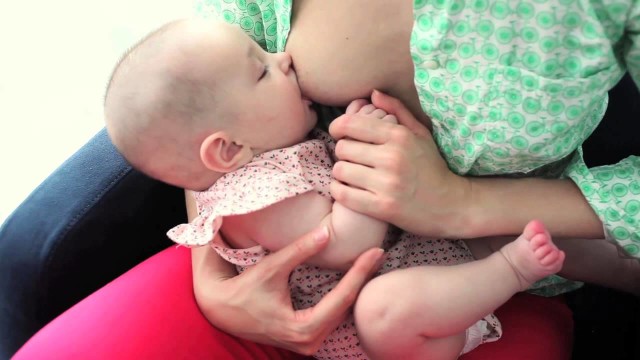
7. Chocolate
Some women notice that their breastfed baby gets fussy when they eat chocolate. This is completely normal. A lot of times, it’s more-so due to the amount of chocolate that’s eaten, not the chocolate itself.2 If you like to indulge, try limiting yourself to one square of chocolate at a time to help ease your baby’s fussiness.
8. Citrus Fruits
Citrus fruits can cahuse discomfort in newborn and infant digestive tracks, so it’s best to limit them in your diet until your baby’s older. The acidity of the fruits cause irritation to their digestive tract, which in turn leads to fussiness. Other fruits that may cause fussiness include pineapples, strawberries, kiwis, cherries, and prunes.
While these are the eight most common foods that tend to make breastfeeding babies fussy, there are still other foods that can cause discomfort. To minimize this, don’t overdo it on any one food group. Try to spread out your nutrition and eat a balanced diet filled with a wide variety of fruits, vegetables, whole grains, healthy fats, and lean protein. When you saturate your diet with one food, it can cause digestion difficulty for your baby. They’re digestive tracts are still developing and the best way to help avoid fuss is to keep a balanced diet. For more information on the best foods to eat while breastfeeding, check out this article.
When you saturate your diet with one food, it can cause digestion difficulty for your baby. They’re digestive tracts are still developing and the best way to help avoid fuss is to keep a balanced diet. For more information on the best foods to eat while breastfeeding, check out this article.
How to Determine Which Foods are Making Your Breastfed Baby Fussy
The hardest part about eliminating the food from your diet that’s making your baby fussy is knowing exactly what it is. Luckily, by following an elimination diet, you can get a better understanding on your baby’s sensitivities. There are three primary steps to determining which foods are making your breastfed baby fussy: getting organized, eliminating certain foods, and testing for confirmation.
Step One: Get Organized
The first step requires you to get a little bit organized. You’ll need to track what you’re eating each day and record how your baby is reacting. Some women go as far as tracking everything they eat while others only focus on the foods that are most likely to create problems listed above. Whatever you decide to do, just be consistent. It’s going to take a few weeks for this process to work, so you’ll need to stay organized and committed. In addition to recording your baby’s fussiness, keep notes on whether they’re crying or colicky, are bloated or suffering from constipation, are gassy, experiencing diarrhea, or have a red ring around the anus.
Whatever you decide to do, just be consistent. It’s going to take a few weeks for this process to work, so you’ll need to stay organized and committed. In addition to recording your baby’s fussiness, keep notes on whether they’re crying or colicky, are bloated or suffering from constipation, are gassy, experiencing diarrhea, or have a red ring around the anus.
Step Two: Eliminate Foods
Next, you’ll need to go on an elimination diet for a few weeks. Start by eliminating one of the main foods that cause irritation and fussiness—dairy. Dairy is one of the most common foods that cause babies to get fussy. Abstain from eating any dairy (or at the very least any cow’s milk) for at least 10 to 14 days. Keep an eye on your baby to see if they are still fussy or if they start to calm down and the symptoms go away. If your baby is still fussy, move on to the next food listed above and repeat the process. You’ll need to continue working down the most common foods that cause irritability until your baby’s symptoms go away. When they do, move on to step three.
When they do, move on to step three.
Step Three: Test Your Results
After you’ve pinpointed the trigger food, it’s time to do a little home experiment to confirm. If all of your baby’s symptoms have subsided, reintroduce the food that you suspect as the cause of fussiness.If your baby starts showing symptoms of discomfort or fussiness within 24 hours of breastfeeding, that food was the culprit and you should remove it from your diet for now. As your baby grows and develops, their stomach will get stronger and adapt to a wider variety of foods. If you have any questions about this process, don’t hesitate to talk to your doctor first.
Conclusion
Breastfeeding your baby is an excellent way to bond, but it means that whatever you consume, your baby consumes. To make sure they’re comfortable, you’ll need to make some adjustments to your healthy diet. Talk to your doctor if you’re concerned or have any questions about allergens. If you need a breast pump for your newborn, don’t forget that the Affordable Care Act means that expectant mothers are eligible to receive an electric breast pump covered by their insurance provider! Just head over to our home page and browse our selection.
If you’ve had a fussy baby and tried any form of an elimination diet to pinpoint the source, head over to our Facebook page today and let us know what food was the culprit!
Should You Avoid Certain Foods While Breastfeeding?
28 August 2020
The time you spend breastfeeding your baby is innately special. Breastfeeding allows you to form a closer bond with your child by providing them with warmth, comfort and security. It also provides countless benefits for your baby’s health and their ability to grow and develop. In fact, your breast milk is perfectly suited to provide your new baby with all of the nutrients, cells, hormones and disease-fighting antibodies he or she needs.
Despite the countless benefits associated with breastfeeding, many new or soon-to-be moms are worried about how their diet may affect their breast milk and their baby. While it’s true that certain substances you eat, drink or ingest can be passed through your breast milk, this doesn’t mean you have to completely change your diet or give up your favorite foods after giving birth.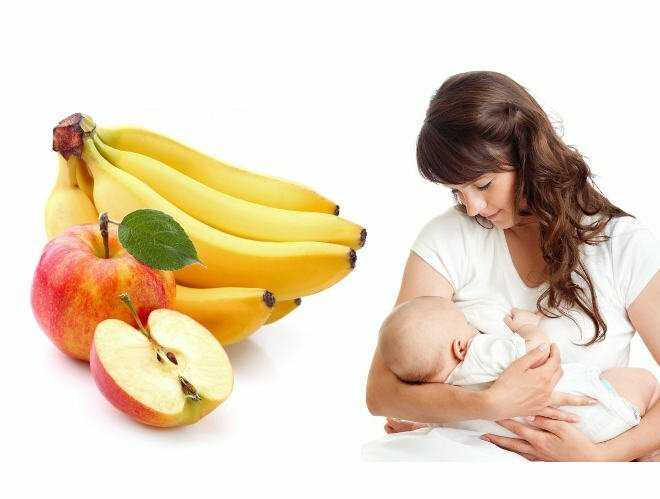
According to the Centers for Disease Control and Prevention, women generally do not need to avoid specific foods while breastfeeding. Above all else, it’s important that new moms eat a healthy and diverse diet that’s rich in nutrients. New moms are also encouraged to eat an additional 330 to 400 calories per day to supplement the energy and nutrition needed to properly produce breast milk.
However, there are certain foods and drinks you should consume with caution as too much can cause problems or have a negative effect on your baby. In the end, it’s all about moderation. For some substances, such as tobacco and marijuana, avoidance is crucial while breastfeeding as they can be detrimental for your baby’s health and development.
We’ll dive into certain foods and drinks that should be limited (or consumed with caution) while breastfeeding, as well as debunk a few myths that exist regarding things to avoid while breastfeeding.
Consume with caution: alcohol
No amount of alcohol is safe for your baby to consume. Because alcohol passes through your breast milk to your baby, the American Academy of Pediatrics (AAP) generally recommends mothers avoid drinking alcohol while breastfeeding.
Because alcohol passes through your breast milk to your baby, the American Academy of Pediatrics (AAP) generally recommends mothers avoid drinking alcohol while breastfeeding.
If you do choose to drink, the AAP considers it safe to consume one alcoholic drink per day (equal to a 4-ounce glass of wine, a 12-ounce beer or 1 ounce of hard liquor). It’s best to consume alcohol after you finish breastfeeding or pumping, rather than before. The AAP also recommends that you wait at least two hours after consuming alcohol before your next nursing or pumping session to allow your body time to metabolize as much alcohol as possible.
“Pumping and dumping” (expressing or pumping breast milk after drinking alcohol, and then discarding it), will not reduce the amount of alcohol present in your breast milk. It will also not help you metabolize alcohol more quickly. This method removes the milk from your breasts, but your alcohol levels can still be high in your blood, meaning it can still be passed into newly produced breast milk.
Limit: caffeine
Less than 1% of the caffeine you consume is passed through your breast milk to your baby. This small quantity does not typically harm your baby if you limit your caffeine intake to just a couple of cups per day. The AAP recommends that you limit yourself to two to three cups of coffee, soda, energy drinks or tea per day (no more than 16 to 24 ounces total).
Consuming large amounts of caffeinated beverages (more than five cups per day) can disrupt your baby’s sleep patterns or cause your baby to become irritable, fussy or jittery. If you notice any of these reactions from your baby after consuming caffeine, consider decreasing your intake or eliminating it from your diet temporarily.
Limit: chocolate
Chocolate can have the same effects as caffeine when consumed in large quantities. Chocolate contains caffeine as well as a stimulant called theobromine, a substance found in the cocoa plant. This stimulant is more present in dark chocolate than milk chocolate and is absent from white chocolate.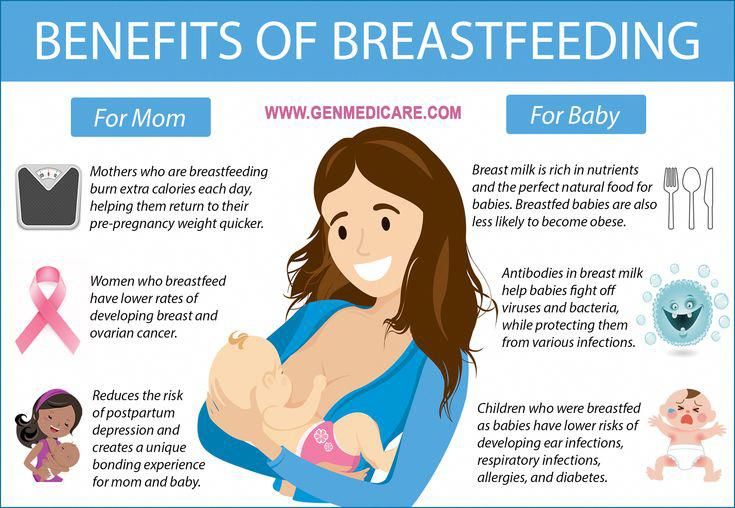
Again, it’s about moderation. Eating a few pieces of chocolate candy or indulging in a slice of chocolate cake is perfectly fine. Just limit your chocolate intake and don’t overdo it.
Consume with caution: fish
Fish and other forms of seafood are a great source of protein, omega-3 fatty acids, vitamins D and B12, iron, and minerals such as selenium, zinc and iodine. However, most varieties of fish also contain mercury, which can cause damage to your baby’s nervous system in large quantities.
When consumed in moderation, the mercury found in fish is only passed through breast milk in small amounts. To help limit the amount of mercury you consume and pass to your baby, the U.S. Food and Drug Administration (FDA) recommends limiting your weekly fish intake and avoiding fish that are known to be high in mercury.
In general, the FDA recommends eating only two to three servings of low-mercury fish per week (one serving is equal to 4 ounces of raw fish) or eating one serving per week of fish with elevated levels of mercury, such as white/albacore tuna or mahi-mahi (dolphinfish). High-mercury fish that should be completely avoided while breastfeeding include king mackerel, marlin, orange roughy, shark, swordfish, tilefish and bigeye tuna. View the FDA’s fish consumption guidelines for breastfeeding mothers here.
High-mercury fish that should be completely avoided while breastfeeding include king mackerel, marlin, orange roughy, shark, swordfish, tilefish and bigeye tuna. View the FDA’s fish consumption guidelines for breastfeeding mothers here.
If you’re eating fish caught by a friend or family member, check the fish advisories provided by the U.S. Environmental Protection Agency for known mercury levels in the area. Limit yourself to one serving of these fish per week while breastfeeding.
Avoid: tobacco and marijuana
Tobacco and marijuana products should be avoided while breastfeeding. The nicotine found in tobacco products, including e-cigarettes, can easily be passed through a mother’s bloodstream and into her breast milk. When ingested, nicotine can impact your baby’s sleep patterns. Nicotine has also been known to decrease milk supply by slowing the production of prolactin, a hormone that’s necessary for the production of breast milk.
Marijuana can also be passed to your baby via your breast milk.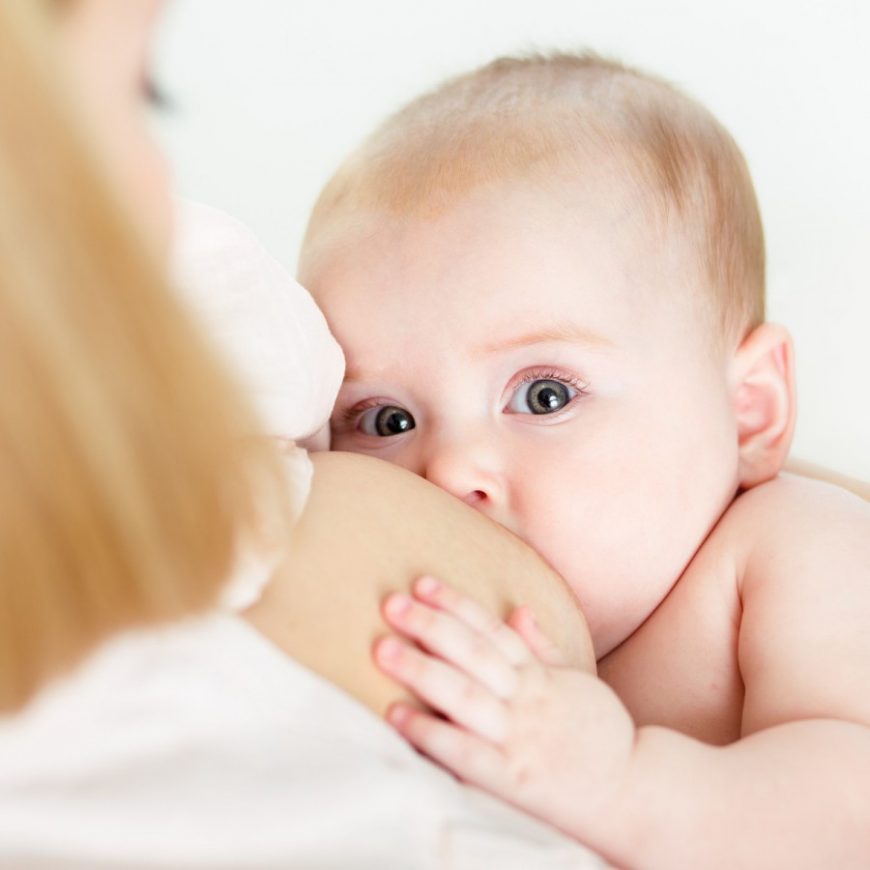 While the long-term effects of THC (the chemical found in marijuana) on infant brain development are still being studied, the AAP maintains that no amount of THC is safe for your baby to consume.
While the long-term effects of THC (the chemical found in marijuana) on infant brain development are still being studied, the AAP maintains that no amount of THC is safe for your baby to consume.
Breastfeeding myths debunked
There are plenty of myths surrounding foods that you should avoid while breastfeeding due to the supposed effects they can have on your baby. We dove into a few of the most common breastfeeding myths to see if they had any scientific backing.
Myth: Peppermint, parsley and sage decrease milk production.
It’s a myth that peppermint, parsley and sage decrease breast milk supply when consumed in large quantities (e.g. as herbal supplements). There is no scientific evidence to prove that these three herbs affect milk production; however, it’s always best to consult your doctor before taking herbal supplements or using herbal products, such as herbal teas or essential oils. Herbs are not regulated by the FDA, meaning there is no guarantee of safety.
In general, using common herbs and spices to flavor foods is perfectly safe for both you and your baby. When consumed in pill or tea form, however, some herbs can be very potent and enter your milk supply, and very little research has been done on how this affects nursing infants. View BabyCenter’s breast milk interactions chart for more information about herbs and breastfeeding.
Myth: You should avoid spicy foods and garlic.
It’s a myth that you should avoid strongly flavored foods, such as spicy foods or garlic, while breastfeeding. While it’s true that these flavor profiles can change the taste of your breast milk, many babies are not bothered by it.
Your child’s tolerance for spicy flavors or garlic will depend on both cultural traditions and personal habits. If you regularly ate spicy foods and lots of garlic while pregnant, your baby will have already been exposed to them in your amniotic fluid (yes, babies do consume some amniotic fluid) and is more likely to be accustomed to those flavors after birth.
It can take anywhere from two to six hours for strong flavors to show up in your breast milk after you eat them. If you do notice that your baby is fussy, gassy or rejects the breast after you eat spicy foods or lots of garlic, consult your pediatrician. They may recommend that you try eliminating these foods from your diet for a few days to see if anything improves.
Myth: You should avoid “gassy” foods while breastfeeding.
It’s a myth that foods that can typically make mothers gassy, such as beans, cauliflower, cabbage, broccoli and onion, will also make your baby gassier after breastfeeding. Gas is a local reaction in your body that occurs in your gastrointestinal tract, so things that make you gassy won’t affect your baby’s digestive system.
Foods that you consume and pass through your breast milk can only make your baby gassy if they have a specific sensitivity to them.
Food allergies and sensitivities
Speaking of food sensitivities, some babies may have an intolerance or allergy to certain foods.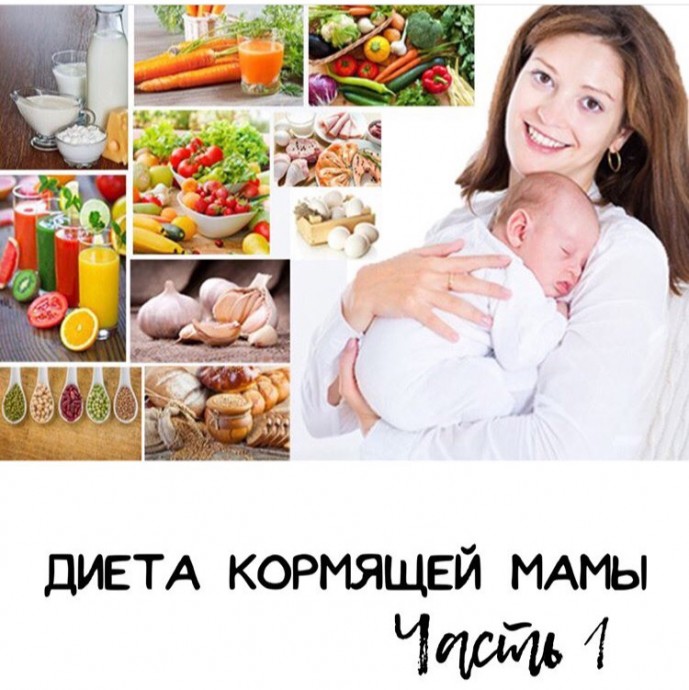 Whenever you eat something, molecules from those foods make their way through your breast milk and into your baby’s digestive system. If your baby is allergic or intolerant to what you ate, their digestive may become inflamed or an immune response may be trigged. It’s unlikely for your breast milk to trigger an allergic reaction in your baby, but it is still possible.
Whenever you eat something, molecules from those foods make their way through your breast milk and into your baby’s digestive system. If your baby is allergic or intolerant to what you ate, their digestive may become inflamed or an immune response may be trigged. It’s unlikely for your breast milk to trigger an allergic reaction in your baby, but it is still possible.
While food allergies and sensitivities will vary from baby to baby, the most common foods that can trigger a negative response are cow’s milk (dairy), soy, gluten, eggs, peanuts and tree nuts, shellfish and citrus.
This doesn’t mean you should avoid these foods while breastfeeding from the start. Exposing your baby to different foods is the best way to learn about any food sensitivities they may have. Keep an eye out for the following symptoms, which may signal a food allergy or intolerance.
- Gas
- Crying and colic
- Diarrhea
- Bloody or mucousy tools
- Rash
- Eczema
- Excessive sitting up or vomiting
- Congestion, runny, nose, wheezing or coughing
- Sleeping problems
If you notice any of these symptoms in your baby after breastfeeding, consult their pediatrician as soon as possible. If they suspect the problems are being caused by a food sensitivity, they may recommend you eliminate certain foods from your diet for two to three weeks to determine the culprit. The only way to treat food allergies or intolerances in babies is strictly avoiding the problem-causing food.
If they suspect the problems are being caused by a food sensitivity, they may recommend you eliminate certain foods from your diet for two to three weeks to determine the culprit. The only way to treat food allergies or intolerances in babies is strictly avoiding the problem-causing food.
For more information about breastfeeding or how your diet can affect your baby, contact an INTEGRIS pediatrician near you.
Share this page
What to eat while breastfeeding | Breastfeeding Diet
You know that breast milk is the best food for your baby. What about your own nutrition while breastfeeding? We asked the nutritionist a few questions about the nutrition of a nursing mother.
Share this information
Priya Tew, UK-based registered dietitian :
Priya is a nutritionist, M.D., multi-award winning member of the British Dietetic Association and the Health Professions Council. She has three children, and she breastfed each of them for up to 18 months.
She has three children, and she breastfed each of them for up to 18 months.
During breastfeeding, there is no need to follow a special diet, the main thing is that your diet is balanced. It should include plenty of fruits and vegetables, whole grains such as oats, brown rice, various cereals, and breads labeled "whole grain", "wholemeal" or "wholemeal". These foods, along with potatoes, pasta, and couscous, are high in starch, an important source of energy.
In addition, you need lean proteins found in chicken, eggs, legumes, lentils, fish, and lean beef, as well as healthy fats found in olive oil, nuts, seeds, avocados, and fatty fish such as salmon and mackerel. Oily fish is very good for your health and development of your baby, but you should not eat more than two servings per week (about 140 g), as it may contain harmful impurities. 1
Should I take vitamins while breastfeeding?
The most important is vitamin D. It is essential for healthy bones, you and your baby.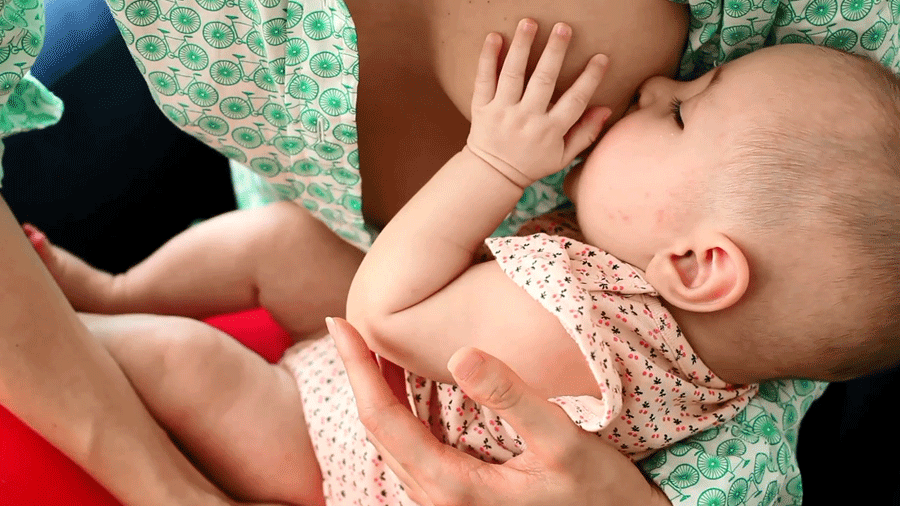 We get most of this vitamin from the sun. If you live in a region with insufficient solar activity, especially in winter, your body may lack it. In this case, the doctor may advise taking vitamin D supplements. 2
We get most of this vitamin from the sun. If you live in a region with insufficient solar activity, especially in winter, your body may lack it. In this case, the doctor may advise taking vitamin D supplements. 2
You also need to get enough calcium, as it is excreted from the body during breastfeeding. 3 Try to eat four servings of foods rich in this mineral a day. These can be dairy products such as milk, yogurt, and cheese, or non-dairy products such as nuts, tofu, sesame seeds, and leafy vegetables. One serving may consist of, for example, half a cup of green vegetables or a small piece of cheese (50 g).
What foods should I avoid while breastfeeding?
The good news is that you can eat almost anything while breastfeeding. Only the consumption of oily fish should be limited. In small quantities, even caffeine is acceptable - more on this below.
If you are not allergic to peanuts, there is no reason to deny yourself products that contain peanuts.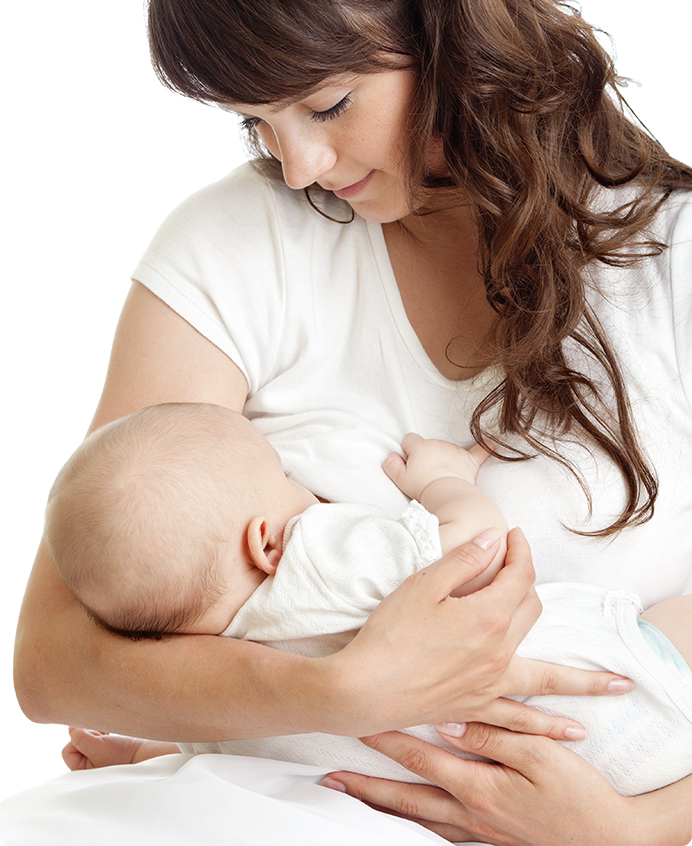 Recent studies show that if you eat peanuts while breastfeeding and gradually introduce them into your baby's diet during the first year, your baby will be less likely to become allergic to them in the future. 4
Recent studies show that if you eat peanuts while breastfeeding and gradually introduce them into your baby's diet during the first year, your baby will be less likely to become allergic to them in the future. 4
Are extra calories needed while breastfeeding?
Breastfeeding mothers need about 500 more calories per day. 5 But every mother is unique and your energy needs will change throughout your breastfeeding period. The number of calories you need depends on your baby's age, appetite, height, and weight, as well as your body mass index (BMI), your activity, and factors such as whether you are exclusively breastfeeding or not, and whether you are breastfeeding twins or multiple babies.
Can I go on a diet while breastfeeding?
Trying to lose weight while breastfeeding is not a good idea because you need to get enough nutrients for you and your baby. The fat accumulated during pregnancy is used to produce milk, so breastfeeding in itself will help you shed those extra pounds.
If your weight changes by more than 1 kg per week, check if you are eating a healthy and balanced diet and adjust if necessary. You can also ask your doctor for advice.
How can I find time to prepare healthy meals?
Having devoted yourself to feeding a child, you can forget about your own nutrition. However, it is important to ensure that your diet does not consist only of sweets and cookies. Of course, sweet snacks are easy and quick, but they do not bring any benefit to your body.
Opt for quick yet nutritious meals like scrambled eggs with spinach or fried chicken with brown rice. Oatmeal is great for breakfast, as it provides a slow release of energy from grains and soluble dietary fiber, which is what you need to restore strength in the morning after a night of breastfeeding.
Store pre-cut fruits and vegetables in the refrigerator for a light snack, or carry unsalted nuts in your bag. It's much easier than peeling tangerines with one hand while holding a baby with the other.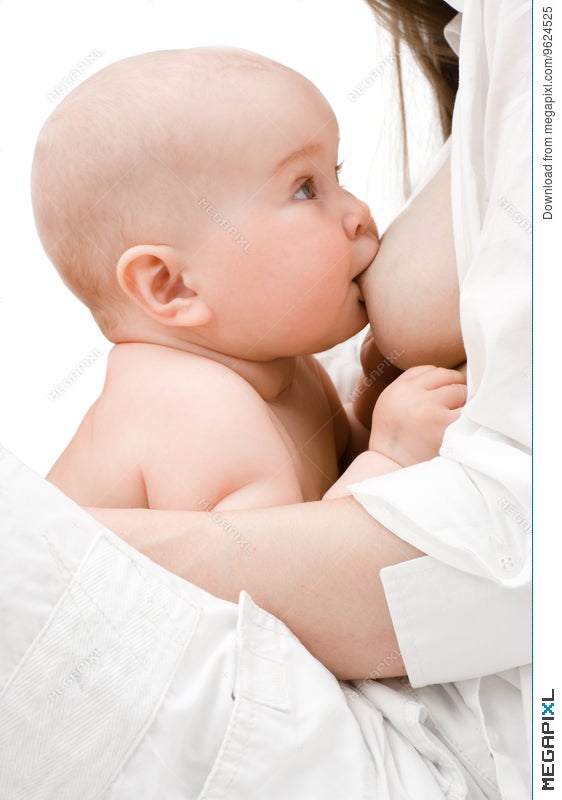
Should I drink more water while breastfeeding?
Breastfeeding can make you thirsty, so it's important to drink enough water. A person needs six to eight glasses of fluid a day, and even more if breastfeeding. 6 Make it a habit to drink a glass of water, milk or fruit juice without sugar every time you feed your baby.
I love coffee. Do I need to quit caffeine?
Coffee, like everything you eat or drink, passes into your breast milk, so it is advisable to limit your intake while breastfeeding. Legal coffee limits vary by country, but the average recommendation is not to exceed 200-300 mg of caffeine per day (300 mg is equivalent to two cups of filtered coffee or four cups of tea). Talk to your doctor about the acceptable amount of coffee consumption for you. Also, don't forget that caffeine is found in cola and energy drinks, and a small bar of dark chocolate can contain up to 50 mg. 7
If I eat a varied diet, will my baby be less picky?
Breast milk has the flavor of everything you eat. 8 Therefore, if you eat a variety of foods during breastfeeding, giving your baby different tastes to try, he may like them in the future.
8 Therefore, if you eat a variety of foods during breastfeeding, giving your baby different tastes to try, he may like them in the future.
If you like spicy and spicy foods, there is no reason to refuse them while breastfeeding. When my first child was born, I ate a lot of spicy food. When my daughter was two years old, we went to Sri Lanka, coincidence or not, but she ate absolutely everything.
Can something in my diet not be suitable for a child?
At an early age, babies often suffer from colic or are picky eaters, so mothers naturally wonder if their diet is causing this. Probably not. Studies show that the proportion of children who are allergic to any component of breast milk is only slightly more than 1%. 9 Cow's milk, eggs, corn, and soy proteins in moms' diets are much more likely to cause allergic reactions than spicy foods, hot sauces, or cruciferous vegetables, which moms usually worry about.
If your baby is allergic to substances in your milk, it can cause profuse vomiting, rash, bloody stools, or prolonged constipation. If your baby has an intolerance to any food, you will notice symptoms such as moodiness and crying after feeding, burping, diarrhea, or the baby will press his knees to his chest. Contact your doctor if something is bothering you. He may suggest eliminating certain foods for a couple of weeks, and then see if the child's behavior changes after eating them again.
If your baby has an intolerance to any food, you will notice symptoms such as moodiness and crying after feeding, burping, diarrhea, or the baby will press his knees to his chest. Contact your doctor if something is bothering you. He may suggest eliminating certain foods for a couple of weeks, and then see if the child's behavior changes after eating them again.
You can also keep a food diary: write down everything you eat and drink, as well as your child's symptoms, and you may notice some patterns. However, before cutting out any foods, such as dairy, always check with your doctor, as it's important to know that you're getting the nutrients you need from other sources. Depending on where you live, you will be referred to a nutritionist or other specialist.
Does a vegetarian diet affect breast milk?
If you are getting enough calories and all the nutrients your body needs (carbohydrates, proteins, fats, vitamins and minerals), then you have nothing to worry about. A vegetarian or vegan diet requires plenty of vitamin B12, vitamin D, calcium, and omega-3 fatty acids while breastfeeding, so opt for foods and supplements that provide you with these essential nutrients.
A vegetarian or vegan diet requires plenty of vitamin B12, vitamin D, calcium, and omega-3 fatty acids while breastfeeding, so opt for foods and supplements that provide you with these essential nutrients.
If you are on a vegetarian, vegan, macrobiotic, or other special diet, you may need additional medical advice to make sure you are getting all the nutrients your baby needs.
Literature
1 National Health Service (NHS) [Internet]. Burnley, UK: Department of Health; 2018. Should pregnant and breastfeeding women avoid some types of fish?; 2015 Jul 06 [cited 2018 Apr 12]; Available from: https://www.nhs.uk/chq/Pages/should-pregnant-and-breastfeeding-women-avoid-some-types-of-fish.aspx - National Health Service (NHS) [Internet]. Burnley, UK: Department of Health; 2018. "Should a pregnant and lactating woman refrain from eating certain types of fish?"; July 6, 2015 [cited April 12, 2018]; See article on site https://www.nhs.uk/chq/Pages/should-pregnant-and-breastfeeding-women-avoid-some-types-of-fish. aspx
aspx
2 Oberhelman SS et al. Maternal vitamin D supplementation to improve the vitamin D status of breast-fed infants: a randomized controlled trial. Mayo Clin Proc. 2013;88(12):1378–1387. - Oberhelman S.S. et al., Introduction of Vitamin D to the Diet of Nursing Mothers to Increase Vitamin D in children: a randomized controlled trial. Mayo Klin Prok. 2013;88(12):1378–1387. : effects on the mother and the fetus. Am J Obstet Gynecol. 2006;194(4):937-945. - Thomas M., Weisman S. M., "Calcium supplementation during pregnancy and lactation: effects on the mother and on the fetus". Am J Obstet Ginekol (American Journal of Obstetrics and Gynecology). 2006;194(4):937-945.
4 Pitt et al Reduced risk of peanut sensitization following exposure through breast-feeding and early peanut introduction. J Allergy Clinic Immunol. 2018;141(2):620-625. e 1 - Pitt et al., "Reducing the Risk of Peanut Allergy by Introducing Peanuts into the Breastfeeding Mother's Diet and as a Baby's First Food." G Allergy Clean Immunol. 2018;141(2):620-625.e1
J Allergy Clinic Immunol. 2018;141(2):620-625. e 1 - Pitt et al., "Reducing the Risk of Peanut Allergy by Introducing Peanuts into the Breastfeeding Mother's Diet and as a Baby's First Food." G Allergy Clean Immunol. 2018;141(2):620-625.e1
5 Dewey KG. Energy and protein requirements during lactation. Annu Rev Nutr. 1997 Jul;17(1):19-36. - Dewey K. J., "Energy and Protein Requirements During Lactation". Anna Rev Nutr . 1997 Jul;17(1):19-36.
6 Food Standards Agency (FSA) [Internet]. London, UK: Crown copyright 2002. Eating for breastfeeding; [cited 2018 Apr 13]; Available from: https://www.food.gov.uk - Food Standards Agency (FSA) [Internet]. London, UK: State Copyright 2002. "Eat to feed" [cited April 13, 2018]. See article on https://www.food.gov.uk
7 National Health Service (NHS) [Internet].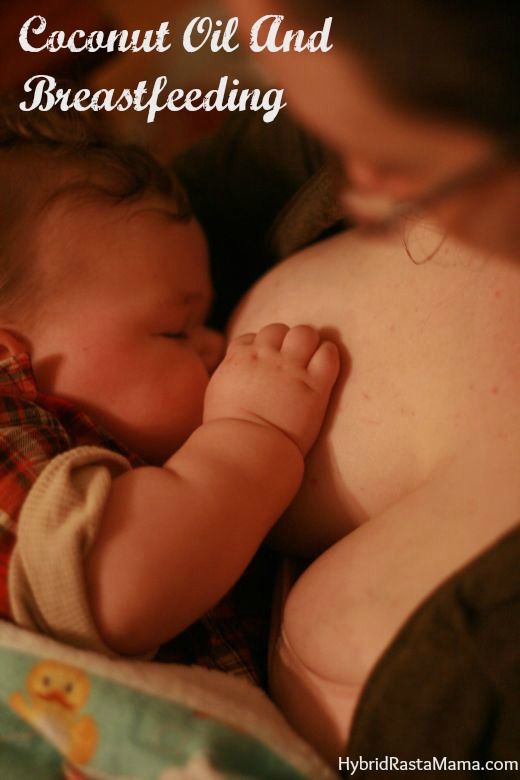 Burnley, UK: Department of Health; 2018. Breastfeeding and diet; 2016 Jan 29 [cited 2018 Apr 12]; Available from: https://www.nhs.uk/conditions/pregnancy-and-baby/breastfeeding-diet - National Health Service (NHS) [Internet]. Burnley, UK: Department of Health 2018. Breastfeeding and Diet; 29 January 2016 [cited 12 April 2018] See article at https://www.nhs.uk/conditions/pregnancy -and-baby/breastfeeding-diet
Burnley, UK: Department of Health; 2018. Breastfeeding and diet; 2016 Jan 29 [cited 2018 Apr 12]; Available from: https://www.nhs.uk/conditions/pregnancy-and-baby/breastfeeding-diet - National Health Service (NHS) [Internet]. Burnley, UK: Department of Health 2018. Breastfeeding and Diet; 29 January 2016 [cited 12 April 2018] See article at https://www.nhs.uk/conditions/pregnancy -and-baby/breastfeeding-diet
8 Mennella JA et al. A. et al., Prenatal and postnatal recognition of odors in children. Pediatrix (Pediatrics). 2001;107(6):e88.
9 Academy of Breastfeeding Medicine. ABM clinical protocol# 24: allergic proctocolitis in the exclusively breastfed infant. Breastfeed Med . 2011;6(6). - Academy of Breastfeeding Medicine. "AVM Clinical Protocol #24: Allergic Proctocolitis in an Exclusively Breastfed Child". Brestfeed Med (Breastfeeding Medicine). 2011;6(6).
Mother's nutrition in case of constipation in a child
Co-author, editor and medical expert - Volosov Dmitry Dmitrievich.
Views: 267 549
Last update date: 09/22/2022 G.
average reading time: 8 minutes
Content:
- Classification of constipation in newborns and infants
- Causes of constipation in infants
- Importance of maternal nutrition in constipation in the infant
- Recommended products
- Products not recommended
- Maternal and child feeding rules to avoid constipation
- Feeding mother's menu for several days
Breast milk allows the baby to receive all the nutrients necessary for its growth and full development, and saves the mother from worrying about the correct selection of milk formulas, the temperature of the prepared baby food, etc. But there is a nuance in breastfeeding: the quality of the baby’s digestion directly depends on maternal diet. Therefore, quite often women turn to the doctor with the question of what to eat for the mother if the child has constipation, and how to normalize the stool of the newborn by correcting the diet of the mother.
Classification of constipation in newborns and infants
Delayed stool in children can be acute or chronic. In the first case, it occurs once or is observed periodically, but with large intervals between episodes. In a chronic condition, this problem is relevant for a long period: the symptoms of constipation are observed constantly for several weeks or months.
In addition to classification by flow, constipation is divided into atonic and spastic. In the first case, the peristalsis is sluggish and weak, and the excreted feces are dense and voluminous. With spastic constipation, excessive peristalsis is observed in one of the sections of the intestine, which leads to a temporary "blockage" of feces and its difficult movement. Feces with spastic constipation are heterogeneous, divided into small, dry and hard lumps.
Back to content
Causes of constipation in infants
The most common causes of constipation in infants are:
- Improper nutrition of the mother.
 Maternal nutrition for constipation in a breastfed infant should be considered first. It is the violations of the diet in the mother that often lead to a delay in the stool in the child. The diet of a nursing mother with constipation in a baby often includes foods that have a fixing property.
Maternal nutrition for constipation in a breastfed infant should be considered first. It is the violations of the diet in the mother that often lead to a delay in the stool in the child. The diet of a nursing mother with constipation in a baby often includes foods that have a fixing property. - Features of the nervous system of the newborn. A kind of immaturity of the mechanisms responsible for innervation (that is, the supply of organs and tissues with nerves, ensuring their connection with the central nervous system) of the intestine can cause constipation due to an insufficient response of receptors to irritation by fecal masses.
- Maternal medication. A number of drugs necessary for the treatment of various diseases and conditions in a nursing mother give side effects in the form of a decrease in intestinal tone, slowing down peristalsis, etc. Therefore, when prescribing drug therapy, a woman should inform the doctor that she is breastfeeding.
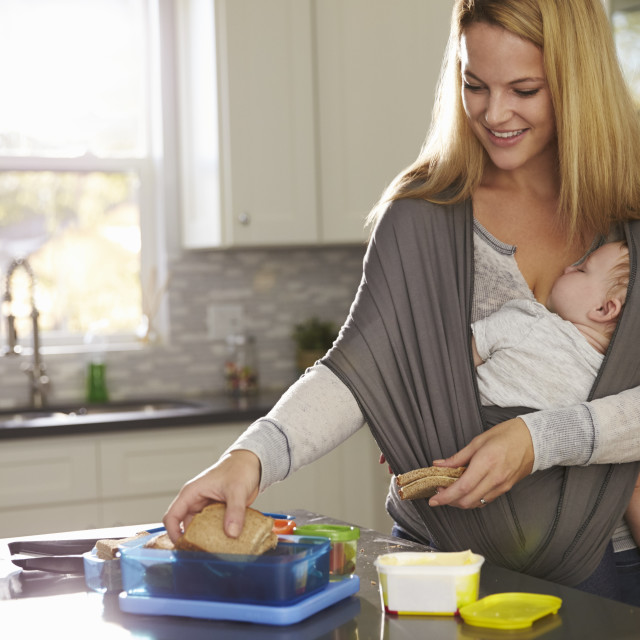
Back to Contents
Importance of Maternal Nutrition in Constipated Infants
Nursing Nutrition in Constipated Infants is much more important than it might seem at first glance. So, the lack of liquid in the diet leads to an increase in the fat content of milk, which can cause a delay in stool in a child. Consumption of a large amount of sweets and baked goods can change the chemical composition of milk. It also negatively affects the functions of the intestines in the baby. And the lack of plant products in the menu - vegetables and fruits, vegetable oils, etc. - reduces the amount of vitamins and minerals in breast milk, which can provoke not only constipation, but also other medical problems.
Back to content
Recommended foods
What to eat for constipated nursing mothers, you can choose from the list of recommended foods:
- Cereals . Wheat, oatmeal, corn, buckwheat porridge, whole grain bread, wholemeal or bran bread.

- Meat products. All types of lean meat boiled, baked or stewed, soups in weak broths.
- Vegetables . Table beets, pumpkin, zucchini, cucumbers, cabbage, potatoes, tomatoes in the form of salads from fresh or boiled vegetables, side dishes, independent dishes (soups, stews, casseroles, etc.).
- Dried fruits . Dried apricots and prunes are the best laxative foods, but they should be limited to 3-5 per day. per day, as if consumed in excess, they can cause diarrhea.
Back to Contents
Unrecommended Foods
A diet rich in laxatives and fiber is not the only requirement for a constipated infant diet. It is equally important to exclude from the maternal menu products that produce a fixing effect. These include rice, semolina, pasta, muffins, sweets, pears, pomegranates, strong brewed tea, coffee, cocoa, chocolate.
If constipation in a baby is accompanied by intestinal colic and increased gas formation, all legumes should also be excluded from the diet, and vegetables and fruits from the recommended list should be consumed only in processed form (soups, mashed potatoes, stews, etc. ). Laxative products while breastfeeding should also be limited if the baby has unstable stools - alternating constipation and diarrhea.
). Laxative products while breastfeeding should also be limited if the baby has unstable stools - alternating constipation and diarrhea.
Top of page
Maternal and child feeding rules to avoid constipation
Maternal nutrition in constipated infants is of great importance. But the diet and food hygiene mean no less: they help eliminate a number of factors that have an undesirable effect on the mother's body and, as a result, on the quality of breast milk.
Observe the hours of eating and feeding . A clear regimen will make mom's digestion more efficient and, accordingly, improve the absorption of nutrients. And meals in small portions 4-5 times a day will ensure a uniform supply of nutrients to the milk. Feeding the baby should be based on the same principle. Teach him to eat at strictly allotted hours according to his age - a "disciplined" digestive system is much less prone to constipation.
Pay attention to feeding hygiene . In addition to traditional hygienic procedures before feeding (washing hands, wiping the nipple and areola), it is necessary to ensure that the child grasps the nipple correctly. With sucking movements, he should not swallow air - this can provoke disruption of the digestive tract. To ensure better hygiene, and to make the mother feel more confident during breastfeeding, we recommend using JOHNSON’S ® 9 Breast Pads0015 Baby.
With sucking movements, he should not swallow air - this can provoke disruption of the digestive tract. To ensure better hygiene, and to make the mother feel more confident during breastfeeding, we recommend using JOHNSON’S ® 9 Breast Pads0015 Baby.
MICROLAX ® has prepared visual material especially for mothers of babies prone to constipation:
Up to content
Menu for a nursing mother for several days
If the baby has constipation, what should the mother eat and in what quantities? Here is the approximate composition of the diet for two days:
| 1st breakfast | Monday: 100 g of muesli, filled with 100 g of yogurt or low-fat kefir, and weak tea with crispbread. Tuesday: 100 g porridge (oatmeal, buckwheat, barley), 150 g vegetable salad, dried fruit compote. |
| 2nd breakfast | Monday: apple, whole grain bread with a slice of cheese. Tuesday: Bran bread sandwich with honey, weak green tea. |
| Lunch | Monday: Serving of vegetable soup, 150 g of mashed potatoes with boiled beetroot salad and 100 g of boiled or baked fish, compote. Tuesday: cup weak beef broth with whole grain toast, 150g vegetable casserole, weak tea with 1 tsp. honey. |
| Snack | Monday: 2-3 pcs. dried apricots, 200 ml of kefir. Tuesday: 150 g finely grated fresh apple and carrot salad dressed with 1 tbsp. l. low fat sour cream. |
| Dinner | Monday: 200 g syrniki, prunes decoction. Tuesday: 150 g chicken breast, 100 g fresh or boiled vegetable salad, kefir - 200 ml. |
Further, your diet should be built similarly to this example, taking into account the recommended and undesirable products.

